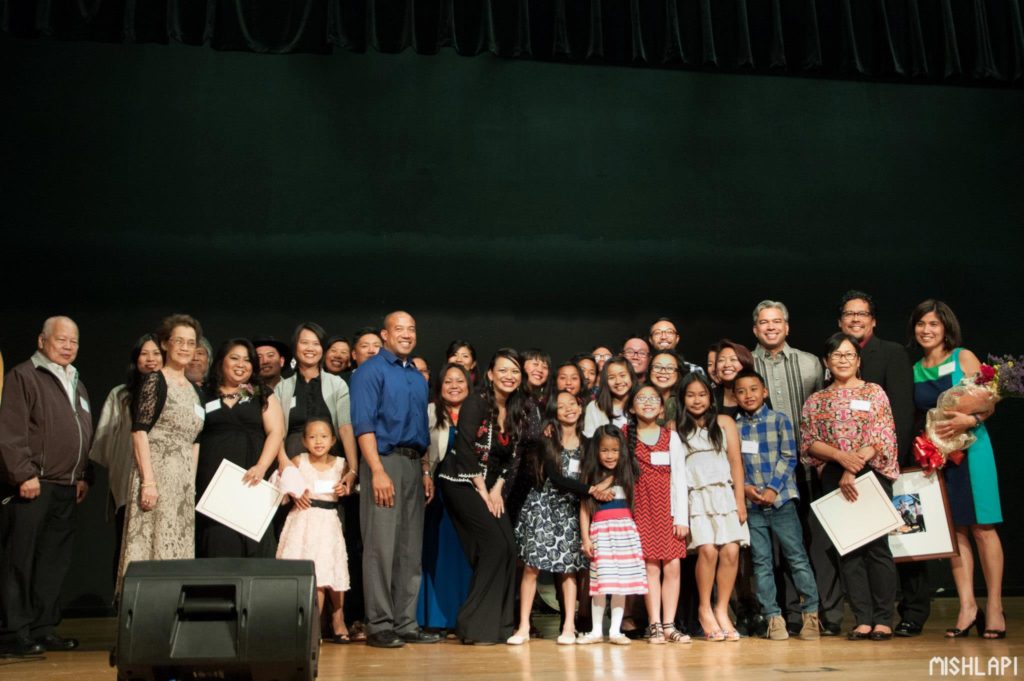A few kind words can change someone’s life.
Allyson Tintiangco-Cubales ’93, Ph.D., almost fell through the cracks of Fremont’s public school system. She attended American High School, but as a daughter of Filipinx immigrants, she didn’t feel much school spirit. “I didn’t have teachers who looked like me,” she said. “I didn’t have a curriculum that reflected what it meant to be a Filipina in the United States. So I lost interest.”
After graduating with a GPA well below college admission standards, Dr. Tintiangco-Cubales took classes at Ohlone Community College to stay on her father’s health insurance plan. When she walked into Intro to Ethnic Studies, taught by Professor Ramon Quezada ’71, she found her life path.

“That class completely shifted the way I thought about the world and helped me see value in myself,” she said. “He assigned a paper on racism, and I articulated my ideas in a way that I had never done before.” He told Tintiangco-Cubales, “You have the potential to succeed.”
A Cal alum, Quezada encouraged Dr. Tintiangco-Cubales to continue her education at UC Berkeley. She was accepted and arrived in the spring of 1991. “I often felt out of place in UC Berkeley’s highly competitive setting,” she said. “I didn’t feel like I could relate to the other students who had parents who were doctors, lawyers, and engineers. But I was able to find my way.”
From Student to Teacher
Currently a professor of Asian American studies at San Francisco State University, Dr. Tintiangco-Cubales has founded multiple organizations dedicated to Ethnic Studies and education. Pin@y Educational Partnerships (PEP), an educational pipeline focused on providing Ethnic Studies educators and curriculum to schools throughout San Francisco, began in 2001 as an educational program for Filipinx American students at Balboa High School.
“The idea was to connect San Francisco State students with high school students,” she said. “What started as a mentorship program blossomed quickly to providing Ethnic Studies courses. The response was amazing: it impacted academic achievement, but also you could see students felt like they belonged. They felt like their stories were heard.”
Over the past 20 years, 72% of PEP teachers have gone on to pursue advanced degrees—12% of those at the doctoral level. Countless PEP students have earned college degrees and are engaged in community organizing and student activism.
[My] goal is to help [young people] develop their identities, create meaningful relationships with their families, and see how they can create change and pursue justice.
Dr. Allyson Tintiangco-Cubales ’93, Ph.D.
The program itself has also grown. Multiple high schools, middle schools, and elementary schools partner with San Francisco-based colleges to offer Ethnic Studies programs. “We created an Ethnic Studies pathway specifically focused on Filipinx American studies from kindergarten to college.”
While she stepped down from her director position at PEP last year, Dr. Tintiangco-Cubales remains heavily involved in Community Responsive Education (CRE), a network she founded with social worker and entrepreneur Glenda Macatangay to offer professional and curriculum development services to community organizations and educational institutions across the United States, particularly those serving working-class communities and communities of color. As part of her involvement with CRE, Dr. Tintiangco-Cubales co-developed a community-responsive wellness index to be used in schools across the nation.

“My focus with CRE is on Ethnic Studies as a way to center the wellness of young people,” she said. “The goal is to help them develop their identities, create meaningful relationships with their families, and see how they can create change and pursue justice.”
The Radical Pinay Sisterhood
As someone who often felt isolated and marginalized, but who also thrived socially, Dr. Tintiangco-Cubales spent some of her time at Cal developing a philosophy that would become a movement.
The philosophy is based on the term Pinay, which refers to women of Filipino descent. From that, Dr. Tintiangco-Cubales developed Pinayism, a theoretical framework that addresses the social, political, and economic struggles of Pinays.
“I created principles and pillars, but the idea was to create a space where we could love and care for one another rather than compete.
Dr. Allyson Tintiangco-Cubales ’93, Ph.D., on Pinayism
In 1995, Dr. Tintiangco-Cubales laid out the concept for Pinayism in an article for {M}aganda, a student-run literary publication based out of UC Berkeley. Pinayism embodies revolutionary action, self-affirming conduct, and the exploration of the intersections between race/ethnicity, class, gender, sexuality, religion, and other factors.
Pinayism is not, however, the Filipina version of feminism. “I think of it more as a sisterhood,” says Dr. Tintiangco-Cubales. “I created principles and pillars, but the idea was to create a space where we could love and care for one another rather than compete. It became a way of life and a framework for many organizations.”
Dr. Tintiangco-Cubales has written numerous essays, book chapters, and journal articles on Pinayism, and has also written on Ethnic Studies, pedagogy, and PEP. As if her academic and advocacy work doesn’t keep her busy enough, Dr. Tintiangco-Cubales is currently advising on and writing a textbook on Asian American and Pacific Islander history for UCLA. She was also the lead editor of The SAGE Encyclopedia of Filipina/x/o American Studies, the first of its kind to explore the Filipino diaspora in the United States.
Tintiangco-Cubales says she’s a Golden Bear at heart. “I do know that the Cal alumni are a group of people I can reach out to and rely on, especially when our communities need support.”
Alumni: To learn more about getting involved with the Filipinx alumni community at Cal, check out the Pilipinx American Alumni Chapter (PAAC) on their website and on Facebook, and follow them on Instagram at @calpilipinxalumni.












